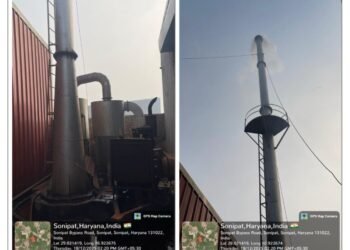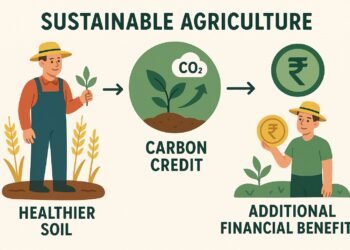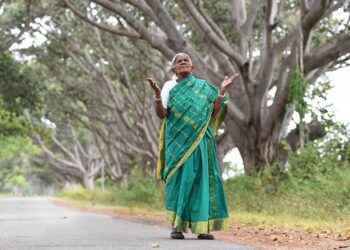While in the UK we have almost been deluged by rain and waiting for the warm summer to kick-in, across parts of Europe there is a heatwave with record breaking temperatures, and a large parts of India, covering Maharashtra, Madhya Pradesh, Andhra Pradesh, Telangana and Jharkhand are reeling under drought conditions.
India’s monsoon region has been on decline in terms of the total rainfall received over the last 50 years. While the extreme rainfall events have become frequent and more variable, the severity and frequency of droughts has increased since 1970s.
These are the real effects of climate change as it is likely to make rainfall erratic, leading to rising seas and make extreme weather events, such as droughts, floods and heat waves frequent.
So, why should we be concerned about the drought in India? Well, it means a lot in our interconnected world. India is the second-largest producer of rice, wheat, sugarcane, cotton and groundnuts, as well as the second-largest fruit and vegetable producer. A recent study published in the journal of Environmental Research Letters shows that yields from India’s main crop, rice has witnessed larger declines during extreme weather conditions.

These current weather patterns in India, the UK and Europe are put into context with the latest report released by the United Nation’s (UN) special rapporteur on extreme poverty, Philip Alston. He warns of a possible “climate apartheid”, where the rich pay to escape from hunger, “while the rest of the world is left to suffer”.
Alston explains that even if current targets are met, “millions will be impoverished”, and criticises steps taken by UN bodies as “patently inadequate”. Alston is part of the UN’s panel of independent experts, and submitted his report – which is based on existing research – to the UN Human Rights Council on 1 July.
A key warning of the report is that that the world’s poor are likely to be hardest hit by rising temperatures – and the potential food shortages and conflict that could accompany such a change. Developing nations are expected to suffer at least 75 percent of the costs of climate change – despite the fact that the poorer half of the world’s population generate just 10 percent of emissions.
“Those who have contributed the least to emissions will be the most harmed”, Alston says in the report, warning that the effects could undo 50 years of progress on poverty reduction.
Alston cites examples of how the wealthy in Western nations already cope with extreme weather events. When Hurricane Sandy hit New York in 2012, most citizens were left without power, yet the Goldman Sachs headquarters was protected by tens of thousands of its own sandbags and power from its generator. Similarly, private white-glove firefighters have been dispatched to save the mansions of the wealthy.
Alston is not only disparaging governments, but also for the UN Human Rights Council to which he submitted the report. “The Human Rights Council can no longer afford to rely only on the time-honoured techniques of organising expert panels, calling for reports that lead nowhere, urging others to do more but doing little itself, and adopting wide-ranging but inconclusive and highly aspirational resolutions,” Alston writes.
Chilling, Alston warns that democracy, could also be at risk as governments struggle to make major changes to cope.”The human rights community, with a few notable exceptions, has been every bit as complacent as most governments in the face of the ultimate challenge to mankind represented by climate change,” the report said.He said that the entire human rights community had failed “to face up to the fact that human rights might not survive the coming upheaval”.
Alston’s report heavily criticises lack of action, despite such warnings, over the past several decades. “Sombre speeches by government officials at regular conferences are not leading to meaningful action,” he laments.
We can all agree irrespective of where we are living in the world right now, that there has been a failure to act, and we can see from the extreme weather conditions that we are all experiencing right now that climate change is moving faster than we are and is now a climate crisis.




















